No Results Found
The page you requested could not be found. Try refining your search, or use the navigation above to locate the post.

Opinions – Everyone’s got one or two or three: A Look at Michigan Rules of Evidence 701-707
Lay Versus Expert Opinions (Rules 701 & 702)
Before delving into specific rules, it’s crucial to establish the fundamental distinction between lay witnesses and expert witnesses.
Lay witnesses are individuals with everyday experiences and observations, while experts possess specialized knowledge, skill, or training in a particular field.
This distinction directly impacts the admissibility and weight given to their opinions.
Rule 701 governs lay witness opinions. Here, opinions are only admissible if they are:
Rule 702, on the other hand, empowers expert witnesses to offer opinions based on their specialized knowledge. However, their testimony must meet four key criteria:
Have your rights been violated?
Have your driving priviledges been revoked?
Has your professional license been suspended?
Second Amendment rights taken away?
Have you been charged with a crime?
Call our office to see if we can help
Komorn Law 248-357-2550
Rule 703 provides further clarity on the sources of an expert’s opinion. Experts can base their opinions on facts or data in the case they have been made aware of or personally observed, even if not yet formally admitted into evidence. This allows for greater flexibility in utilizing their expertise.
Rule 704 addresses the question of “ultimate issues.” Opinions are not inadmissible simply because they touch upon the core question of the case, known as the “ultimate issue.” For example, in a medical malpractice case, an expert may be able to offer an opinion on whether the doctor’s actions fell below the standard of care, even though this goes directly to the heart of the jury’s decision.

Rule 705 deals with the timing of the disclosure of the factual basis for an expert’s opinion. Generally, experts can state their opinion and its rationale without first disclosing the underlying facts or data. However, the opposing party may have the opportunity to delve into these details during cross-examination, ensuring transparency and allowing the jury to assess the basis of the opinion.
Rule 706 empowers the court to appoint independent expert witnesses in certain situations. This might occur when both parties present conflicting expert opinions, or when the court deems neutral expertise crucial for fair and balanced adjudication.
Finally, Rule 707 governs the use of learned treatises for impeachment purposes. Learned treatises are scholarly publications in a field of expertise. This rule allows for cross-examining expert witnesses by bringing to their attention statements in reputable treatises that contradict their testimony. However, these treatises are not admissible as standalone evidence and can only be read into the record for impeachment purposes.
The Impact of Opinion Testimony: Weighing the Scales
Understanding the intricacies of Rules 701-707 highlights the delicate dance between lay and expert opinions in the courtroom. These rules safeguard against unreliable or prejudicial pronouncements while enabling the valuable contribution of both everyday understanding and specialized knowledge. The jury ultimately acts as the arbiter of fact, tasked with weighing the credibility and persuasiveness of all opinions presented, whether from lay witnesses or experts.
Important:
This article provides a simplified overview of the Michigan Rules of Evidence for informational purposes only. It should not be interpreted as legal advice. When facing legal matters, always consult with a qualified attorney for professional guidance.
The Michigan Rules of Evidence are subject to change over time. Always consult the latest official version for accurate information.
Here is the link to the Michigan Rules of Evidence Handbook. Check the footer for the latest update.
Related Articles
The page you requested could not be found. Try refining your search, or use the navigation above to locate the post.

I wanted to give a huge thanks to University of Michigan Law School Professors Howard Bromberg, Mark Osbeck and Law School class. This past Thursday I had the honor of being asked to speak about my favorite topics, the Michigan Medical Marihuana Act and the practice...
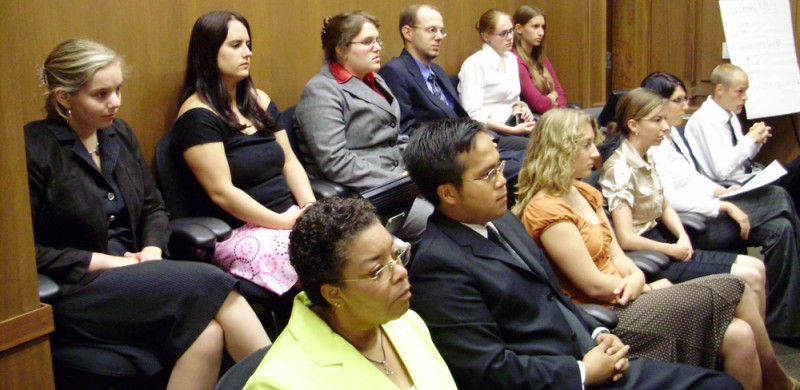






A jury trial is fundamental to our democratic system of government. Every American citizen should embrace this responsibility by participating, and ensure justice prevails. by Michael Komorn I just picked a jury in a marihuana case, there were several perspective...







The best resource for everything related to Michigan medical marijuana with your host Attorney Michael Komorn. Live every Thursday evening from 8 -10 pm eastern time. By Michael Komorn The Michigan Supreme Court issued a unanimous opinion making a finding that...
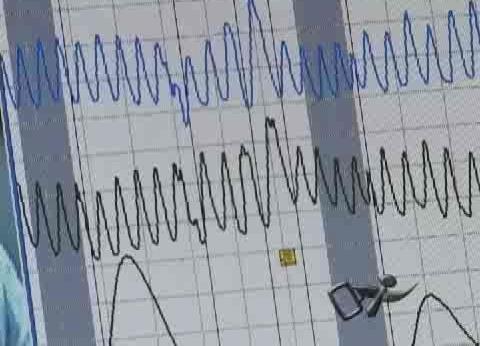






Polygraphs are widely recognized as unreliable yet police still use them to elicit confessions. By Michael Komorn Many states don’t allow polygraph test to be admitted in court because they are unreliable. Their lack of reliability is widely recognized by criminal...
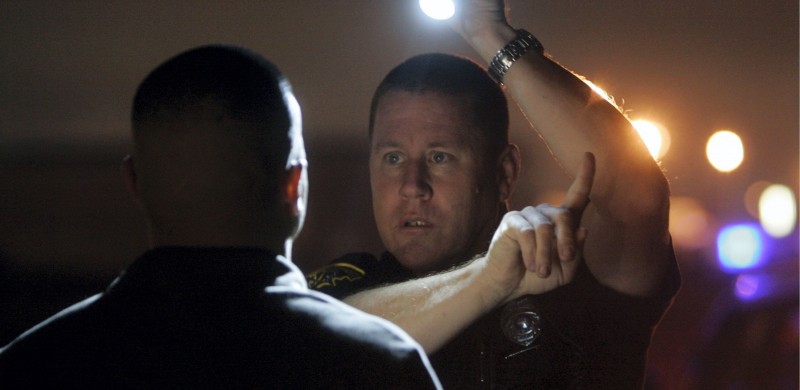






By Michael Komorn Arrests for DUI’s have been on the rise across Michigan. This trend could drastically increase as The National Transportation Safety Board (NTSB) has called on state authorities to reduce the legal limit to 0.05 percent. Currently, all 50 U.S. states...







Federal Judge Applies GPS Ruling To Drug Dog Traffic Stop By Michael Komorn Last week, a judge with the US District Court for the Southern District of West Virginia applied the precedent to the common police practice of “permeation” where a police officer enters a...
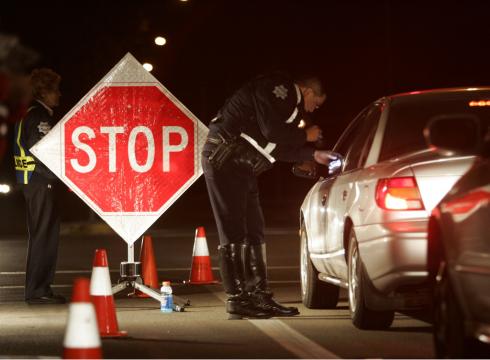






By Michael Komorn The Supreme Court ruled in City of Indianapolis V. Edmund that drug check points are unconstitutional. So what happens when you see one on the highway? Keep calm and carry on. Police, especially in the Mid-west, have been using drug check points as a...
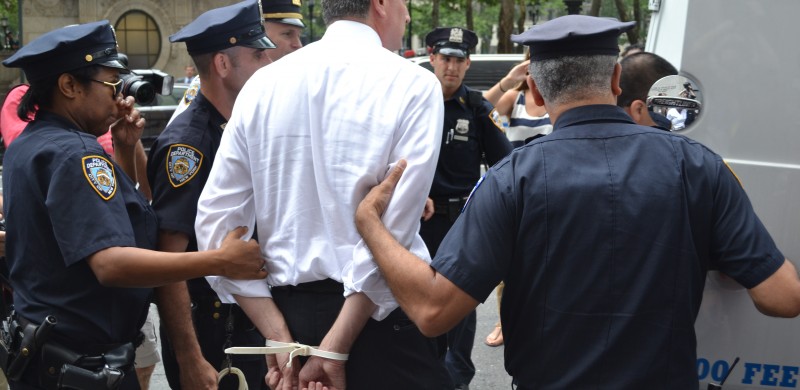






Remember, even if you are doing nothing wrong, there are a number of different outcomes that can occur from a police encounter. The short list includes: 1) No action, no problems; 2) A warning or citation; 3) An arrest and/or criminal charges. Exercising your rights...







Thousands of people plead guilty to crimes every year in the United States because they know that the odds of a jury’s believing their word over a police officer’s are slim to none. As a juror, whom are you likely to believe: the alleged criminal in an orange jumpsuit...







Below is a list of common drug offenses as defined by the State of Michigan. If it is your second offense, it is important you read statute 333.7413 below. 333.7413 Conviction of second or subsequent violation; penalty....


Navigating the Witness Box: A Look at Michigan Rules of Evidence 601-615
In the courtroom, witness testimony plays a crucial role in unveiling the truth and determining the outcome of a case.
However, not everyone can simply walk into the courtroom and take the stand.
Michigan Rules of Evidence 601-615 establish a framework for determining who can testify, what they can say, and how their testimony is presented. This article delves into these rules, providing a factual overview based on the Michigan Rules of Evidence Handbook.
Have your rights been violated?
Have your driving priviledges been revoked?
Has your professional license been suspended?
Second Amendment rights taken away?
Have you been charged with a crime?
Call our office to see if we can help
Komorn Law 248-357-2550
Rule 601: Competency to Testify
This fundamental rule establishes a presumption of competency, stating that “every person is competent to be a witness.” This means that anyone, regardless of age, background, or mental capacity, can potentially take the stand. However, the rule also acknowledges exceptions. The court may find someone incompetent to testify if they lack “sufficient physical or mental capacity or sense of obligation to testify truthfully or understandably.” This determination usually involves questioning the witness and assessing their ability to perceive, recall, and communicate relevant information accurately.
Rule 602: Need for Personal Knowledge
Just because someone is competent doesn’t mean their testimony is automatically admissible. Rule 602 requires witnesses to have “personal knowledge” of the matters they are testifying about. This means they must have directly observed, heard, or experienced the events they are describing. Hearsay, or secondhand information, is generally not admissible under this rule. However, there are exceptions for certain types of hearsay evidence, such as business records or statements made under specific circumstances.
Rule 603: Oath or Affirmation
Before taking the stand, every witness must swear or affirm to tell the truth. This oath or affirmation serves to impress upon the witness the importance of their testimony and the potential consequences of lying. The form of the oath or affirmation can be adapted to accommodate the witness’s religious beliefs or cultural background.
Rule 604: Interpreter
When a witness doesn’t speak English fluently, an interpreter is needed to ensure accurate communication. Rule 604 requires interpreters to be qualified and to take an oath or affirmation to faithfully translate the witness’s testimony. The court has the discretion to appoint and supervise the interpreter to ensure fairness and accuracy.
Rule 605: Judge’s Competency as a Witness
To maintain impartiality and prevent conflicts of interest, Rule 605 prohibits the presiding judge from testifying as a witness in the same case. This applies even if the judge has relevant personal knowledge of the events in question. If the judge becomes a necessary witness, they must recuse themselves from the case.


Rule 606: Juror’s Competency as a Witness
Similar to the judge, Rule 606 restricts juror testimony in certain situations. Jurors may not testify before the other jurors during the trial, as this could influence their deliberations. Additionally, during an inquiry into the validity of a verdict or indictment, jurors are barred from testifying about their own mental processes or the deliberations of the jury. This protects the sanctity of the jury room and prevents tampering with the verdict.
Rule 610: Ruling on Hearings on Competency and Privilege
When questions arise about a witness’s competency or a claim of privilege, the court conducts a hearing outside the presence of the jury. This allows the judge to make a fair and informed ruling without influencing the jury’s perception of the witness or the evidence.
Rule 611: Mode and Order of Examining Witnesses
Rule 611 governs the manner in which witnesses are questioned. It allows each party to present their case through direct examination of their own witnesses and cross-examination of the opposing party’s witnesses. The court also has the authority to question witnesses to clarify or expand on their testimony.
Rule 612: Writing Used to Refresh Memory
Sometimes, witnesses may need to refresh their memory before or during their testimony. Rule 612 allows witnesses to use writings, such as notes, memoranda, or recordings, to recall past events. However, these writings themselves are not admissible as evidence unless they qualify under another rule.
Rule 613: Prior Statements of Witnesses
In certain circumstances, prior statements made by a witness outside of court can be used to impeach their credibility or explain inconsistencies in their testimony. Rule 613 outlines the conditions under which these prior statements can be admitted as evidence.
Rule 614: Calling and Examining Adverse Parties
This rule allows a party to call the opposing party as a witness during their own case. Additionally, it permits thorough questioning of the adverse party, even on matters that may be unfavorable to the party calling them.
Rule 615: Excluding Witnesses
To ensure fairness and prevent witnesses from tailoring their testimony to what they have heard from others,
Important:
This article provides a simplified overview of the Michigan Rules of Evidence for informational purposes only. It should not be interpreted as legal advice. When facing legal matters, always consult with a qualified attorney for professional guidance.
The Michigan Rules of Evidence are subject to change over time. Always consult the latest official version for accurate information.
Here is the link to the Michigan Rules of Evidence Handbook. Check the footer for the latest update.
Related Articles
The page you requested could not be found. Try refining your search, or use the navigation above to locate the post.







I wanted to give a huge thanks to University of Michigan Law School Professors Howard Bromberg, Mark Osbeck and Law School class. This past Thursday I had the honor of being asked to speak about my favorite topics, the Michigan Medical Marihuana Act and the practice...







A jury trial is fundamental to our democratic system of government. Every American citizen should embrace this responsibility by participating, and ensure justice prevails. by Michael Komorn I just picked a jury in a marihuana case, there were several perspective...







The best resource for everything related to Michigan medical marijuana with your host Attorney Michael Komorn. Live every Thursday evening from 8 -10 pm eastern time. By Michael Komorn The Michigan Supreme Court issued a unanimous opinion making a finding that...







Polygraphs are widely recognized as unreliable yet police still use them to elicit confessions. By Michael Komorn Many states don’t allow polygraph test to be admitted in court because they are unreliable. Their lack of reliability is widely recognized by criminal...







By Michael Komorn Arrests for DUI’s have been on the rise across Michigan. This trend could drastically increase as The National Transportation Safety Board (NTSB) has called on state authorities to reduce the legal limit to 0.05 percent. Currently, all 50 U.S. states...







Federal Judge Applies GPS Ruling To Drug Dog Traffic Stop By Michael Komorn Last week, a judge with the US District Court for the Southern District of West Virginia applied the precedent to the common police practice of “permeation” where a police officer enters a...







By Michael Komorn The Supreme Court ruled in City of Indianapolis V. Edmund that drug check points are unconstitutional. So what happens when you see one on the highway? Keep calm and carry on. Police, especially in the Mid-west, have been using drug check points as a...







Remember, even if you are doing nothing wrong, there are a number of different outcomes that can occur from a police encounter. The short list includes: 1) No action, no problems; 2) A warning or citation; 3) An arrest and/or criminal charges. Exercising your rights...







Thousands of people plead guilty to crimes every year in the United States because they know that the odds of a jury’s believing their word over a police officer’s are slim to none. As a juror, whom are you likely to believe: the alleged criminal in an orange jumpsuit...







Below is a list of common drug offenses as defined by the State of Michigan. If it is your second offense, it is important you read statute 333.7413 below. 333.7413 Conviction of second or subsequent violation; penalty....
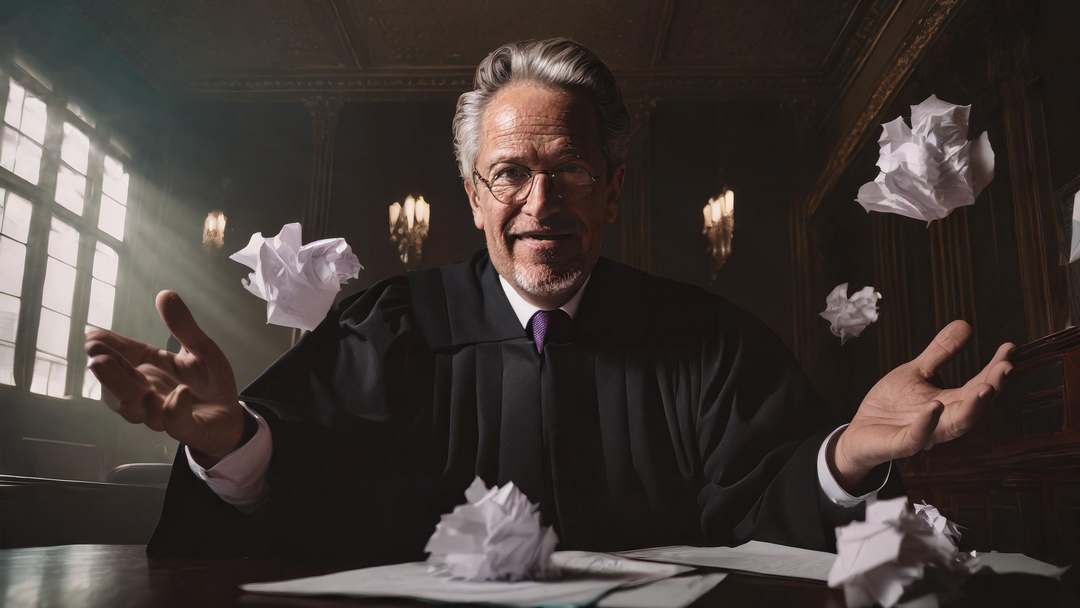

Judge tosses lawsuits stemming from Michigan’s marijuana recall
LANSING, MI — A Michigan Court of Claims judge on Jan. 2 dismissed two lawsuits linked to Michigan’s enormous 64,000-pound, $229 million 2021 marijuana recall that impacted an estimated 60% of all cannabis products in the state.
The dispute centers on the Michigan Cannabis Regulatory Agency’s (CRA) Nov. 17, 2021 decision to recall any marijuana tested between Oct. 10 and Nov. 16, 2021 by Viridis Laboratories, a licensed safety lab tasked with ensuring cannabis products are safe for public consumption.
The CRA issued the recall after noticing the Viridis lab in Lansing passed as safe marijuana that had previously failed testing for the presence of aspergillus, a potentially harmful type of mold.
“We had started noticing in … our statewide monitoring system that packages were failing for aspergillus and then being sent the next day to the (Viridis) laboratories, at which point they were being reported as passing without remediation by the grower,” MRA Scientific and Legal Section Manager Claire Patterson testified on Dec. 2, 2021. If a product tests positive for aspergillus, the mold must be eradicated and the marijuana retested prior to sale.
RESTORE YOUR SECOND AMENDMENT RIGHTS
RESTORE YOUR PROFESSIONAL LICENSE
RESTORE YOUR DRIVER LICENSE
RESTORE YOUR PAST (Expungements)
Call our Office for a free case evaluation
Komorn Law (248) 357-2550




Komorn Law – Federal Courts and All Michigan Courts







I wanted to give a huge thanks to University of Michigan Law School Professors Howard Bromberg, Mark Osbeck and Law School class. This past Thursday I had the honor of being asked to speak about my favorite topics, the Michigan Medical Marihuana Act and the practice...







A jury trial is fundamental to our democratic system of government. Every American citizen should embrace this responsibility by participating, and ensure justice prevails. by Michael Komorn I just picked a jury in a marihuana case, there were several perspective...







The best resource for everything related to Michigan medical marijuana with your host Attorney Michael Komorn. Live every Thursday evening from 8 -10 pm eastern time. By Michael Komorn The Michigan Supreme Court issued a unanimous opinion making a finding that...







Polygraphs are widely recognized as unreliable yet police still use them to elicit confessions. By Michael Komorn Many states don’t allow polygraph test to be admitted in court because they are unreliable. Their lack of reliability is widely recognized by criminal...







By Michael Komorn Arrests for DUI’s have been on the rise across Michigan. This trend could drastically increase as The National Transportation Safety Board (NTSB) has called on state authorities to reduce the legal limit to 0.05 percent. Currently, all 50 U.S. states...







Federal Judge Applies GPS Ruling To Drug Dog Traffic Stop By Michael Komorn Last week, a judge with the US District Court for the Southern District of West Virginia applied the precedent to the common police practice of “permeation” where a police officer enters a...







By Michael Komorn The Supreme Court ruled in City of Indianapolis V. Edmund that drug check points are unconstitutional. So what happens when you see one on the highway? Keep calm and carry on. Police, especially in the Mid-west, have been using drug check points as a...







Remember, even if you are doing nothing wrong, there are a number of different outcomes that can occur from a police encounter. The short list includes: 1) No action, no problems; 2) A warning or citation; 3) An arrest and/or criminal charges. Exercising your rights...







Thousands of people plead guilty to crimes every year in the United States because they know that the odds of a jury’s believing their word over a police officer’s are slim to none. As a juror, whom are you likely to believe: the alleged criminal in an orange jumpsuit...







Below is a list of common drug offenses as defined by the State of Michigan. If it is your second offense, it is important you read statute 333.7413 below. 333.7413 Conviction of second or subsequent violation; penalty....


Another city in Michigan has recently agreed to prioritize local enforcement of laws pertaining to psychedelic substances. Additionally, they have shown their endorsement for a bill at the statewide level that aims to legalize specific ethogenic plants and fungi.
On Tuesday, the Ypsilanti City Council unanimously approved the psychedelics measure after hearing testimonies from supporters.
The whereas section on our website acknowledges the potential of psychedelics to facilitate transformative personal and spiritual experiences. Scientific, clinical studies, and traditional practices have demonstrated their beneficial impact on individual and community well-being in managing conditions such as anxiety and post-traumatic stress.
RESTORE YOUR SECOND AMENDMENT RIGHTS
RESTORE YOUR PROFESSIONAL LICENSE
RESTORE YOUR DRIVER LICENSE
RESTORE YOUR PAST (Expungements)
Call our Office for a free case evaluation
Komorn Law (248) 357-2550
It also points out that the Washtenaw County District Attorney’s office expressed support for a similar resolution that was adopted in Ann Arbor in 2020.
The latest measure specifically says that it is not intended to legalize the commercial sale of psychedelics.
It declares that the arrest and investigation of individuals involved in psychedelics-related activities, including possession and cultivation, are deemed as the City of Ypsilanti’s lowest priority for law enforcement.
It is also emphasized that no city funds or resources will be utilized in any investigations, detentions, arrests, or prosecutions related to alleged violations of state and federal laws concerning the use of Entheogenic Plants.




Komorn Law – Federal Courts and All Michigan Courts







I wanted to give a huge thanks to University of Michigan Law School Professors Howard Bromberg, Mark Osbeck and Law School class. This past Thursday I had the honor of being asked to speak about my favorite topics, the Michigan Medical Marihuana Act and the practice...







A jury trial is fundamental to our democratic system of government. Every American citizen should embrace this responsibility by participating, and ensure justice prevails. by Michael Komorn I just picked a jury in a marihuana case, there were several perspective...







The best resource for everything related to Michigan medical marijuana with your host Attorney Michael Komorn. Live every Thursday evening from 8 -10 pm eastern time. By Michael Komorn The Michigan Supreme Court issued a unanimous opinion making a finding that...







Polygraphs are widely recognized as unreliable yet police still use them to elicit confessions. By Michael Komorn Many states don’t allow polygraph test to be admitted in court because they are unreliable. Their lack of reliability is widely recognized by criminal...







By Michael Komorn Arrests for DUI’s have been on the rise across Michigan. This trend could drastically increase as The National Transportation Safety Board (NTSB) has called on state authorities to reduce the legal limit to 0.05 percent. Currently, all 50 U.S. states...







Federal Judge Applies GPS Ruling To Drug Dog Traffic Stop By Michael Komorn Last week, a judge with the US District Court for the Southern District of West Virginia applied the precedent to the common police practice of “permeation” where a police officer enters a...







By Michael Komorn The Supreme Court ruled in City of Indianapolis V. Edmund that drug check points are unconstitutional. So what happens when you see one on the highway? Keep calm and carry on. Police, especially in the Mid-west, have been using drug check points as a...







Remember, even if you are doing nothing wrong, there are a number of different outcomes that can occur from a police encounter. The short list includes: 1) No action, no problems; 2) A warning or citation; 3) An arrest and/or criminal charges. Exercising your rights...







Thousands of people plead guilty to crimes every year in the United States because they know that the odds of a jury’s believing their word over a police officer’s are slim to none. As a juror, whom are you likely to believe: the alleged criminal in an orange jumpsuit...







Below is a list of common drug offenses as defined by the State of Michigan. If it is your second offense, it is important you read statute 333.7413 below. 333.7413 Conviction of second or subsequent violation; penalty....
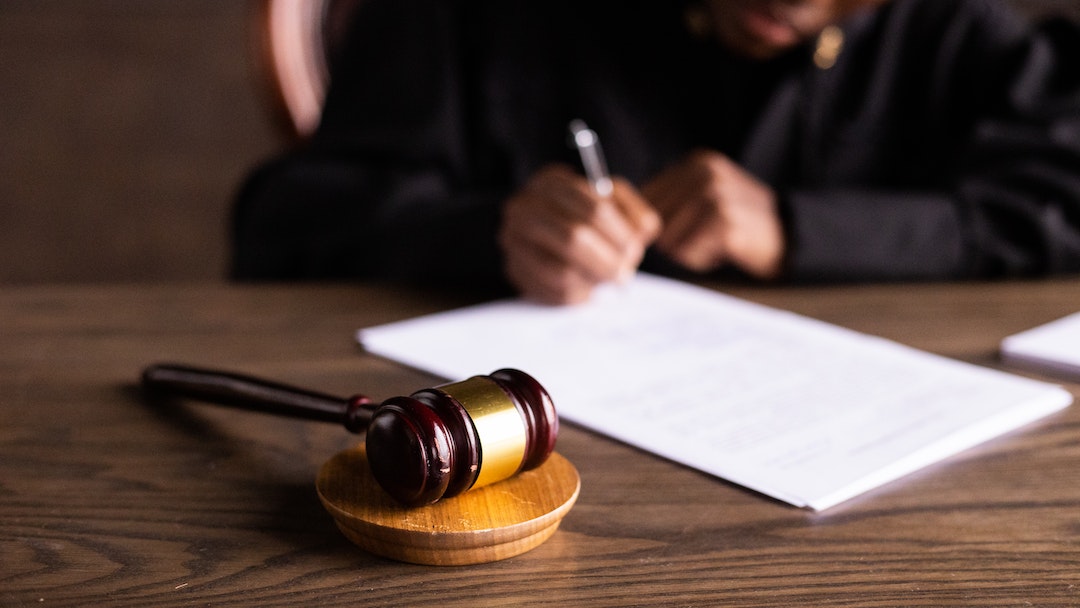

Rule 501. Privilege; General Rule.
Privilege is governed by the common law, except as modified by statute or court
rule.
Have your rights been violated?
Have your driving priviledges been revoked?
Has your professional license been suspended?
Have you been charged with a crime?
Call our office to see if we can help
Komorn Law 248-357-2550
Understanding the Protection of Confidential Communications
Rule 501 of the Michigan Rules of Evidence (MRE) plays a crucial role in safeguarding confidential communications and upholding important relationships in legal proceedings. This article delves into the key aspects of Rule 501, drawing insights from the Michigan Rules of Evidence Handbook.
Main Principle: Common Law Governs Privilege Claims
The fundamental principle of Rule 501 states that claims of privilege in Michigan courts are primarily governed by the common law. This means that established legal precedents and principles, as interpreted by United States courts, serve as the primary source for determining whether information qualifies for protection under a privilege.
Exceptions to Common Law Rule
However, the rule recognizes three exceptions where common law may not be the sole authority for privilege:
Importance of Rule 501 in Practice
Rule 501 plays a critical role in ensuring fair and just legal proceedings by:
Further Resources for Understanding Rule 501
The Michigan Rules of Evidence Handbook offers in-depth analysis and commentary on Rule 501, including:
By understanding the principles and implications of Rule 501, legal professionals and individuals alike can navigate the complex world of privilege in Michigan courts with confidence.
Important:
This article provides a simplified overview of the Michigan Rules of Evidence for informational purposes only. It should not be interpreted as legal advice. When facing legal matters, always consult with a qualified attorney for professional guidance.
The Michigan Rules of Evidence are subject to change over time. Always consult the latest official version for accurate information.
Here is the link to the Michigan Rules of Evidence Handbook. Check the footer for the latest update.
Related Articles
The page you requested could not be found. Try refining your search, or use the navigation above to locate the post.







I wanted to give a huge thanks to University of Michigan Law School Professors Howard Bromberg, Mark Osbeck and Law School class. This past Thursday I had the honor of being asked to speak about my favorite topics, the Michigan Medical Marihuana Act and the practice...







A jury trial is fundamental to our democratic system of government. Every American citizen should embrace this responsibility by participating, and ensure justice prevails. by Michael Komorn I just picked a jury in a marihuana case, there were several perspective...







The best resource for everything related to Michigan medical marijuana with your host Attorney Michael Komorn. Live every Thursday evening from 8 -10 pm eastern time. By Michael Komorn The Michigan Supreme Court issued a unanimous opinion making a finding that...







Polygraphs are widely recognized as unreliable yet police still use them to elicit confessions. By Michael Komorn Many states don’t allow polygraph test to be admitted in court because they are unreliable. Their lack of reliability is widely recognized by criminal...







By Michael Komorn Arrests for DUI’s have been on the rise across Michigan. This trend could drastically increase as The National Transportation Safety Board (NTSB) has called on state authorities to reduce the legal limit to 0.05 percent. Currently, all 50 U.S. states...







Federal Judge Applies GPS Ruling To Drug Dog Traffic Stop By Michael Komorn Last week, a judge with the US District Court for the Southern District of West Virginia applied the precedent to the common police practice of “permeation” where a police officer enters a...







By Michael Komorn The Supreme Court ruled in City of Indianapolis V. Edmund that drug check points are unconstitutional. So what happens when you see one on the highway? Keep calm and carry on. Police, especially in the Mid-west, have been using drug check points as a...







Remember, even if you are doing nothing wrong, there are a number of different outcomes that can occur from a police encounter. The short list includes: 1) No action, no problems; 2) A warning or citation; 3) An arrest and/or criminal charges. Exercising your rights...







Thousands of people plead guilty to crimes every year in the United States because they know that the odds of a jury’s believing their word over a police officer’s are slim to none. As a juror, whom are you likely to believe: the alleged criminal in an orange jumpsuit...







Below is a list of common drug offenses as defined by the State of Michigan. If it is your second offense, it is important you read statute 333.7413 below. 333.7413 Conviction of second or subsequent violation; penalty....


People v Poole (Docket No. 352569) decided January 18, 2024
The State Appellate Defender Office celebrates today’s outcome for our client John Antonio Poole. As an 18-year-old child, Mr. Poole was sentenced to life without the possibility of parole. Now in his 40s, Mr. Poole has a chance at freedom. Today, the Court of Appeals held that all individuals who were sentenced to life without the possibility of parole as 18-year-olds are entitled to resentencing, regardless of when that sentence was imposed. The mandatory sentence of death in prison for an 18-year-old violates the state constitutional prohibition on cruel or unusual punishment.
More than 250 individuals in Michigan will now have the potential to receive new sentences offering an opportunity for parole. The State Appellate Defender Office is looking forward to representing many of those individuals in their resentencing hearings.
Mr. Poole’s attorney Maya Menlo said: “We are gratified by this decision. Mr. Poole and so many others like him who received unconstitutional life without parole sentences, deserve an opportunity to demonstrate that they are capable of rehabilitation.”
Read the court’s decision here
COA 352569 PEOPLE OF MI V JOHN ANTONIO POOLE Opinion 20240118_c352569_158_352569.opn
RESTORE YOUR SECOND AMENDMENT RIGHTS
RESTORE YOUR PROFESSIONAL LICENSE
RESTORE YOUR DRIVER LICENSE
RESTORE YOUR PAST (Expungements)
Call our Office for a free case evaluation
Komorn Law (248) 357-2550




Komorn Law – Federal Courts and All Michigan Courts







I wanted to give a huge thanks to University of Michigan Law School Professors Howard Bromberg, Mark Osbeck and Law School class. This past Thursday I had the honor of being asked to speak about my favorite topics, the Michigan Medical Marihuana Act and the practice...







A jury trial is fundamental to our democratic system of government. Every American citizen should embrace this responsibility by participating, and ensure justice prevails. by Michael Komorn I just picked a jury in a marihuana case, there were several perspective...







The best resource for everything related to Michigan medical marijuana with your host Attorney Michael Komorn. Live every Thursday evening from 8 -10 pm eastern time. By Michael Komorn The Michigan Supreme Court issued a unanimous opinion making a finding that...







Polygraphs are widely recognized as unreliable yet police still use them to elicit confessions. By Michael Komorn Many states don’t allow polygraph test to be admitted in court because they are unreliable. Their lack of reliability is widely recognized by criminal...







By Michael Komorn Arrests for DUI’s have been on the rise across Michigan. This trend could drastically increase as The National Transportation Safety Board (NTSB) has called on state authorities to reduce the legal limit to 0.05 percent. Currently, all 50 U.S. states...







Federal Judge Applies GPS Ruling To Drug Dog Traffic Stop By Michael Komorn Last week, a judge with the US District Court for the Southern District of West Virginia applied the precedent to the common police practice of “permeation” where a police officer enters a...







By Michael Komorn The Supreme Court ruled in City of Indianapolis V. Edmund that drug check points are unconstitutional. So what happens when you see one on the highway? Keep calm and carry on. Police, especially in the Mid-west, have been using drug check points as a...







Remember, even if you are doing nothing wrong, there are a number of different outcomes that can occur from a police encounter. The short list includes: 1) No action, no problems; 2) A warning or citation; 3) An arrest and/or criminal charges. Exercising your rights...







Thousands of people plead guilty to crimes every year in the United States because they know that the odds of a jury’s believing their word over a police officer’s are slim to none. As a juror, whom are you likely to believe: the alleged criminal in an orange jumpsuit...







Below is a list of common drug offenses as defined by the State of Michigan. If it is your second offense, it is important you read statute 333.7413 below. 333.7413 Conviction of second or subsequent violation; penalty....